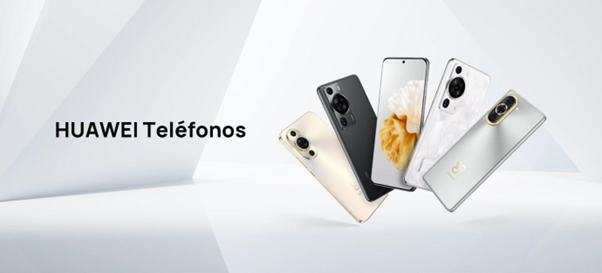NFTs have been all the rage for more than a year now as millions of people continue to join the craze. With NFTs having become as big as they are now in popular culture, it is not surprising that companies like YouTube seem to be planning on integrating them., which has increased the number of NFT scams too.
Unfortunately, as the potential for profits grows in the NFT space, bad actors have found more reasons to disrupt it. Of all of them, those who seem to be benefiting the most out of the relatively young technology are scammers. With most people still in the process of familiarizing themselves with the nature of crypto and NFTs, many are easy prey to these scammers.
These scams can range from selling copyrighted material as an NFT without the proper authorization to phishing attacks that result in robberies worth millions. If you have already been participating in the NFT space or are considering doing so, there is only one way to protect your assets: Inform yourself. This means doing your research on the validity of NFTs, platforms, artists, and other relevant data before completing a deal.
Today, we will be taking a look at some of the most frequent NFT scams and how they work, which will hopefully help you avoid falling for them. However, it is important to remember that new scams are always being created by scammers and you should never drop your guard. With that out of the way, let’s get started!
NFTs: A Brief Overview
The first step toward avoiding NFT scams is to “truly” understand what NFTs actually are. If you are reading about NFT scams, chances are that you already have an idea of what an NFT is. However, there are many misunderstandings about how NFTs work and what they actually represent.
For this reason, we will first take a brief look at what NFTs are and some of the most common misconceptions around them. From thinking of NFTs as cryptocurrencies to thinking about owning an NFT as owning the copyright of a work, many savvy investors have fallen for this. As such, don’t worry if you believe any of these misconceptions!
What Actually Are NFTs?
With artists like Beeple and Pak, as well as projects like CryptoPunks, Axie Infinity, Bored Ape Yacht Club, and many more, NFTs have become a synonym of digital collectibles. While this is certainly one of the purposes they can serve, NFTs are a digital representation of any asset that is unique in nature and indivisible. This means an NFT could represent anything from a piece of art to real estate ownership, IDs, insurance policies, and much more.
An example of some of the innovative applications given to NFTs includes when TechCrunch Founder Michael Arrington sold his apartment in Kyiv using an NFT, Black Manta Capital Partners’ “Real Estate Token Offerings”, and Auroboros’ showing of NFT-powered Augmented Reality clothing during the London Fashion Week.
While most people are interested in art-related applications of NFTs at this time, understanding the further implications of the technology will make it easier for you to avoid scams. While we look further into this later in this guide, many scammers promise that by buying an NFT you will be acquiring the rights to a work. NFTs won’t provide you with the rights over the work they represent… At least not by themselves. If someone tells you this when buying an NFT, this should be an immediate red flag.
Common Misconceptions About NFTs
Now that you understand that NFTs are just a means to represent ownership or authenticity of an asset, it’s time to talk about what NFTs are not. While many of these misconceptions will clearly be incorrect to your eyes, there are many people out there who still fall for them. Let’s take a look!
NFTs Are Bad for the Environment
While discussions around the environmental impact of blockchain technology have been around for years, it wasn’t until 2020 that the discussion started gaining relevance. This occurred when The New York Times published a piece titled “In Coinbase’s Rise, a Reminder: Cryptocurrencies Use Lots of Energy”.
The article highlighted some of the alleged environmental impacts of networks like Bitcoin, which according to the writer were many. Ranging from requiring more energy than countries like Argentina to influencing environmental policy negatively, it was understandable that many people freaked out.
Immediately after publishing, many rebuttals were written by crypto enthusiasts and other organizations. Ever since, the debate has soared around the topic, with both parties making valid and invalid points.
NFTs run on blockchain technology, which means that the energy use of a network will also translate to the minting and transacting of NFTs. This has created a lot of controversy around the NFT craze, which has resulted in many people not joining the space.
Networks like Ethereum, which hosts some of the biggest NFT marketplaces, have a big carbon footprint. This means that by using them, you could potentially be contributing to the deterioration of the environment… Which might be against your beliefs. That being said, several networks use more energy-efficient algorithms, at least according to their development teams.

The fact is that most experts agree that concerns around the environmental impact of the blockchain (including NFTs) were blown out of proportion. Not only does most of the energy used by blockchain come from renewable sources but it often avoids energy from being wasted. Sure, blockchain (as any technology) has an environmental impact but blockchain is not a major driver of carbon emissions. You can read more about this topic here.
NFTs Will Make You Rich
A lot of people seem to be investing in NFTs with the expectation of becoming rich by selling them for millions of dollars. While there are certainly cases in which this can happen, this is far from the most common scenario.
Investing in NFTs is no different than any other type of investment: You need to have an understanding of what you are acquiring. If you buy digital art in the form of an NFT, you need to be able to evaluate how good and unique that piece truly is, just in the same way a traditional art collector would. The same applies when buying Real Estate NFTs, Music NFTs, or any other type: Not all NFTs will gain value over time.
Understanding that NFTs are not primarily a means to get rich will save you a lot of pain in the future. Scammers take advantage of the greed of many investors by promising insane returns that never materialize. Don’t let greed take the best out of you, only invest in what you truly expect to gain value in a long time after serious consideration.
NFTs and Cryptocurrency Are the Same
It is not unusual for people to consider NFTs as a form of cryptocurrency. While both crypto and NFTs are based on blockchain or distributed ledger technology, they are quite different in nature. Cryptocurrencies are able to serve a financial purpose due to their fungible nature while NFTs are… Well, non-fungible.
This means that while you can exchange 1 Bitcoin for another without it affecting you in any way, you can’t do the same with an NFT. Every NFT, even if they represent the same digital asset, is different from one another. While this might not sound like much of a difference, this makes both types of assets entirely different.
NFTs Can Be Easily Copied
“Why buy an NFT when I can just right-click and save the image/MP3/etc without paying?” is a common phrase these days. Well, people who think in this way about NFTs are truly missing the point.
As we said before, you are not buying a file when you buy an NFT. What you are receiving is a certification of authenticity and ownership over it. The argument of copying an NFT by saving the file is the same as saying that a photocopy of the Monalisa has the same value… It just doesn’t.
When you acquire an NFT, you are acquiring its provenance, which can’t be copied. This is because of the security, immutability, and transparency of blockchain technology. It is just not possible for anyone to create a fake NFT: The person who owns the NFT owns the provenance of the asset.
NFTs Are Only For Rich People
Unfortunately, this is one of the most common misconceptions preventing people from joining the NFT space. With most news outlets announcing multi-million NFT sales and celebrities like Jimmy Fallon/Paris Hilton boasting about their NFTs, it makes sense to think all NFTs are expensive. After all, when have you heard about a great NFT collection selling pieces for $50 dollars?
There are all sorts of NFTs out there, ranging from avatars for blockchain games to art pieces by emerging artists. If you have ever purchased a painting for your home, this is just the same process as buying an art NFT. Sure, you might not be able to buy an original Picasso but you surely can afford other paintings you will like.
NFTs Don’t Mean You Own Rights Over the Asset
This is a misconception that absolutely everyone should take out of their mind. Many people believe that if they acquire the NFT of an asset like Nyan Cat, they are buying the rights over the piece. If this was the case, they would be able to profit from the use of the image or transfer the copyright to another person… This is not the case.
Buying an NFT won’t give you ownership over intellectual property rights by itself unless specifically specified. It is possible for an artist to link the copyright of a work to the NFT but this requires legal documentation out of the blockchain. While this might change in the future, NFTs are unable to represent copyright at this time.
The Most Common NFT Scams and How To Avoid Them
We have been beating around the bush for too long already. While it is important to understand what NFTs are and aren’t, we understand if you want us just to jump straight into the topic. As such, let’s just do that… just after this last tip!
The golden rule you should always keep in mind in the blockchain, crypto, and NFT space (as well as out of it) is: If something looks too good to be true, it probably is. By following this golden rule, you will be safe from most scams. Now, without further ado, let’s take a look at some of the most popular NFT scams.
Phishing Scams
This type of scam is far from unique to the NFT space but is one of the most common due to how “easy” they are to pull out. These scams rely on social engineering to trick a victim into granting access to their NFTs.
Let’s say you are browsing the internet and get a popup telling you that you qualify for a free NFT and all you have to do to get it is to connect your wallet. You follow the instructions and connect your wallet, just to find out that your NFTs are transferred to the scammer’s wallet. If this happens to you, this would be a Phishing attack.
Another way in which scammers gain access to your NFTs through phishing is by getting you to share your private wallet keys or seed phrases, which they can then use to steal your holdings.
While you may think that you would never fall for such a scam, no one is completely free of risk. Recently, Ozzy Osbourne’s NFT project shared a scam link without even realizing it, which many followers quickly followed. Can you blame them? The link came from a “reliable” source after all!
Another NFT collector lost over $2.2 million worth of NFTs after falling for a phishing scam. The victim in this case had been in the NFT space for years… Which shows that anyone can fall for such a scam.
To protect yourself from these scams, you should never connect your wallet to a service you haven’t previously researched. Not only this but always double-check the URL before connecting your wallet, as popups can easily deceive you while using a legit platform. If in doubt, don’t connect your wallet and visit the verified website for the service.
When it comes to sharing your seed phrase securely… Just don’t. No legit platform will ever ask you for your seed phrase unless you are trying to restore your wallet. Your seed phrase is the key to your crypto, never give it away. Any operation that requires your seed phrase should allow you to do it by yourself!
Pump and Dump Schemes
Pump and dumps are one of the most common types of scams in the crypto world and they are now making their way to the NFT space. This scam consists of a group of scammers creating hype around an NFT or collection using social media and/or influencers in the space. These NFTs or collections will usually have no real value but FOMO (fear of missing out) will drive investors to buy-in.
Think about the last time you experienced FOMO when investing and it is not hard to see why people would fall for this scam. The success of projects like CryptoPunks, Bored Ape Yacht Club, Axie Infinity, and others have put people into a frenzy of looking for the big next thing. Unfortunately, once several investors give up to FOMO and invest, the scammers will just sell all of their holdings and see the value of the assets drop.
In some instances, a group is not even needed for this type of scam. A scammer can use multiple wallets to purchase the NFT and give the illusion of value, waiting for an unsuspecting victim to fall for it.
To avoid these scams, the best way to go is to carefully review the transaction history of a given NFT before acquiring it. Checking for any red flags or suspicious activity will help you make better choices. In this same way, make sure to acquire NFTs because you truly believe in their value, instead of letting “social pressure” drive you to buy them.
Plagiarized NFTs
The pseudo-anonymity of most blockchain networks means that most of its users can claim to be anyone they wish, which comes useful for those looking to pull NFT scams. While many NFT platforms require their artists to verify their identity and link it to their crypto wallets, this is not always the case. The secondary market can make it even harder to know who you are dealing with.
With NFTs being so easy to mint nowadays, it is possible for any scammer to mint a token and claim to be a famous artist. Once they have done so, they will offer the NFTs at exorbitant prices waiting for a victim to pay it when the NFT doesn’t really represent an asset they own.
Going back to the Monalisa example, anyone could mint an NFT of the Monalisa while claiming to be the Louvre Museum. With even Picasso’s works becoming an NFT now, this scenario wouldn’t sound too strange to some investors. However, as the person minting the NFT is not the true owner of the artwork, such an NFT would be virtually worthless… At least in terms of provenance.
Fortunately, avoiding this type of scam is pretty easy. First, try to use platforms that verify the identity of an artist before allowing the minting and selling of an NFT. If this is not possible, just make sure to do your research on the origin of the work, such as the artists, which address was used to mint it, etc. Compare with the information for the NFT you are being offered…it should be pretty clear if it is legit or not. Just make sure to use reliable sources and don’t trust random blue checks!
Fake Airdrops and Raffles
This scam is one of the most pretty straightforward when it comes to NFT scams. It has also been around for quite a long time out of the NFT space. A scammer will claim that certain NFTs are being raffled or airdropped to people to fulfill certain requirements. For example, you might be required to connect your wallet (which would turn this into a phishing scam), to pay an “entry fee”, share a link (that will scam others), and much more.
This scam would be the NFT version of the famous “You are the 1,000,000th visitor!” scam. However, as scammers become more skilled, they can make use of several mediums to look legitimate. For example, this scam has become increasingly popular in platforms like Discord with scammers impersonating admins and moderators.
As with other scams, the trick to avoid this one is to always review the official information provided by the project. While many would choose to avoid participating in an airdrop, the truth is that there are legitimate airdrops out there. Making research and checking the official website of the project will help you distinguish between real and fake airdrops. If in doubt, just don’t risk it!
Fake NFT Platforms
While this is one of the more complex types of scams, the creation of fake NFT platforms is becoming increasingly frequent. The reason is simple: There are too many legit NFT platforms to keep count. Not only this but creating a functioning and legit-looking platform can make it extremely easy to fool investors.
These scams will usually take advantage of the impossibility of users to verify the information displayed on a website. For example, while you can check the history of an NFT listed on a site, there is no real way for you to know if it was actually listed on said site. With investors looking for the best deals in the NFT space, this can make it easy for them to fall for this scam.
Avoid these scams by not trusting every site you find, no matter how “legit” it seems. While this sounds easy, it can be complicated with the popularity of social media. If you search for “Is X site legit”, you might find that scammers have created fake reviews and comments on sites like Reddit. For this reason, it is imperative that you only trust reliable sources and NFT platforms.
We understand that going with the most popular platforms might be something a lot of investors don’t agree with… Especially with the eternal “centralized vs decentralized” debate. However, when it comes to protecting yourself, it is probably the easiest method.
Conclusion
NFTs are a great way to collect your favorite digital assets, be it digital art, in-game assets, real estate, or anything else. However, you always must remain vigilant when acquiring new ones as this is when you are more susceptible to scams. Blockchain has made it easier than ever to protect your assets with top-notch security but as with many technologies, the human factor is the most vulnerable.
As new scams are showing up every day, it is impossible for anyone to be aware of all of them. For this reason, your focus should be not on how to prevent a particular scam but on general security practices. These include doing your research, not trusting suspicious platforms/messages/offers, protecting your private information, and not letting greed get the best of you.
The NFT space is a world full of possibilities. Don’t let it become a financial and emotional disaster by risking falling to an NFT scam!




